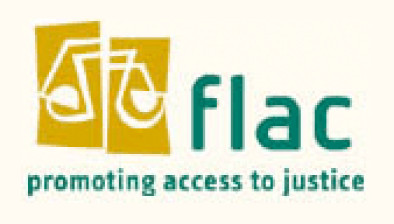Root and branch review of civil legal aid scheme ‘urgently needed’, committee told

Eilis Barry
A root and branch review of the provision of civil legal aid is urgently needed, the Oireachtas justice committee has heard .
Eilis Barry, CEO of FLAC, joined a range of legal experts and representatives of the legal profession this morning at a committee meeting on the issue of “Access to Justice and Legal Costs”.
In its opening statement and submissions to the committee, legal rights group FLAC expressed its concern that only those with very significant resources, the small minority in receipt of legal aid, or those with ‘no foal no fee’ arrangements with their lawyers have reasonable access to justice in the Irish legal system.
FLAC made a number of recommendations to the committee, including the poverty/equality proofing of court fees and changes in court forms and procedures to make them clear, practical and accessible, particularly for lay litigants and people with disabilities.
In its submission, FLAC included numerous examples of complex and obscure court procedures and recommended that a broadly drawn group of relevant stakeholders – such as the Courts Service, Citizens Information Board, IHREC, the NDA, NALA and relevant NGOs and human rights groups – be formed to consider the updating of the forms and procedures to ensure accessibility and clarity.
FLAC also recommended changes to remove barriers to public interest litigation, such as the introduction of multi-party actions and third-party litigation funding. FLAC also set out the importance of developing pro bono legal practice, and among its suggestions was the development of a public procurement model for public legal services requiring all legal services to sign up to a target of pro bono hours per year.
Ms Barry said: “It has been FLAC’s experience that people who are socially disadvantaged very often experience legal problems in accessing social welfare, housing and addressing unemployment, many of which might occur at the same time: the greater the vulnerability, the greater the number of justiciable issues and the greater the extent of social exclusion. Solving one of the legal issues has a beneficial impact in and of itself and may also have a knock-on beneficial effect in other areas and may improve social inclusion.
“Access to justice is also essential to democracy. Laws made by this Oireachtas, such as the important new socially protective provisions contained in the Domestic Violence Act 2018 and the Land and Conveyancing Law Reform (Amendment) Act 2019, are only effective if they can be enforced.”










